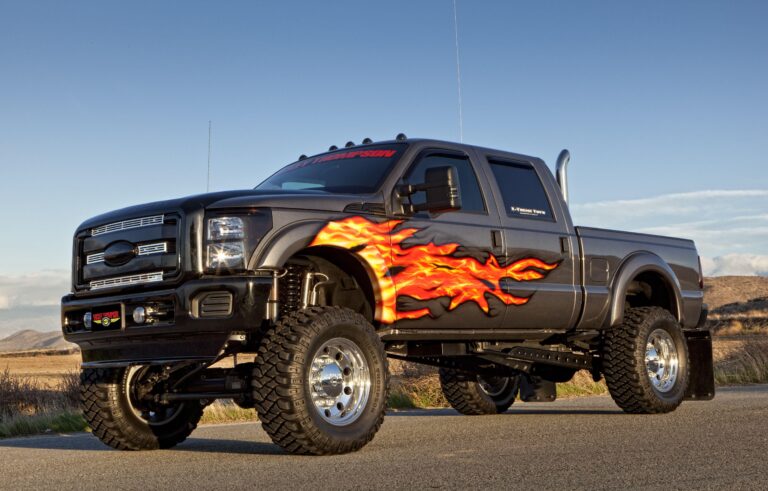Where Is The Best Place To Get A Value On A Used Dump Truck
Where Is The Best Place To Get A Value On A Used Dump Truck cars.truckstrend.com
In the world of heavy equipment, a dump truck is far more than just a vehicle; it’s a workhorse, a revenue generator, and a significant investment. Whether you’re looking to buy your first used dump truck, upgrade your fleet, or sell an existing asset, understanding its true market value is paramount. Overpaying can cripple your budget, while undervaluing can leave significant money on the table. The challenge, however, lies in accurately determining this value. Unlike passenger vehicles with readily available Kelley Blue Book or NADA guides, heavy equipment valuation is a more nuanced process.
So, where is the best place to get a value on a used dump truck? The answer isn’t a single website or a magic formula. Instead, it’s a strategic combination of resources, market insights, and meticulous inspection. This comprehensive guide will navigate you through the various avenues available, equipping you with the knowledge and tools to confidently assess the worth of a used dump truck.
Where Is The Best Place To Get A Value On A Used Dump Truck
I. Online Valuation Tools & Marketplaces: Your Digital Starting Point
The digital age has revolutionized how we research and transact heavy equipment. Online platforms are often the first stop for anyone seeking to understand the market value of a used dump truck.
A. Dedicated Heavy Equipment Marketplaces
These platforms are specifically designed for buying and selling commercial vehicles and heavy machinery, making them invaluable resources for valuation. They host millions of listings and often provide historical sales data.
- TruckPaper.com: A leading marketplace for commercial trucks, including dump trucks. You can browse current listings to see asking prices for comparable models. More importantly, they often provide "Sold" data or access to auction results, which reflect actual transaction prices rather than just asking prices.
- MachineryTrader.com: While broader than just trucks, MachineryTrader lists a vast array of construction equipment, including dump trucks. Similar to TruckPaper, it’s excellent for gauging asking prices.
- IronPlanet.com & RitchieBros.com (Auctioneers): These are giants in the heavy equipment auction world. While primarily auction sites, their extensive archives of past auction results are goldmines for valuation. Searching their "sold archives" for dump trucks similar in make, model, year, hours/mileage, and condition can give you a very accurate picture of what buyers are actually willing to pay. Auction results are particularly valuable because they represent true market value at a specific point in time, often for "as-is" sales.
- How to Use Them: Filter your searches meticulously. Input the exact make (e.g., Peterbilt, Kenworth, Freightliner), model (e.g., 379, T800, M2), year, engine size, axle configuration (e.g., tandem, tri-axle), and approximate mileage or engine hours. Pay close attention to the condition descriptions and accompanying photos. Look for multiple comparable listings to establish a price range.

B. General Online Classifieds (with Caution)
Platforms like Craigslist, Facebook Marketplace, and local classified websites can be useful, especially for smaller or older dump trucks, but they come with caveats.
- Pros: Good for identifying local market trends and private seller prices, which might be lower than dealer prices. You might find unique deals.
- Cons: Less structured data, high variability in listing quality, and often less professional sellers. Prices here tend to be asking prices, which may be negotiable and not reflective of actual sales.
- How to Use Them: Treat these as supplementary sources. Cross-reference any findings with more reliable heavy equipment marketplaces. Be wary of listings that lack detailed information or clear photos.

C. Online Valuation Guides/Databases (Limited Public Access)

While not as publicly ubiquitous for heavy equipment as for cars, some industry-specific subscription services and databases exist. These are often used by financial institutions, insurance companies, and large dealerships. Unless you have a specific need or industry access, these might be less accessible to the average buyer/seller. However, knowing they exist reinforces the idea that professional valuation relies on comprehensive data.
II. Professional Appraisers & Dealerships: Expert Opinions
For a more precise or legally sound valuation, or when dealing with complex assets, turning to human experts is often the best approach.
A. Certified Equipment Appraisers
These are independent professionals who specialize in valuing heavy machinery. They follow standardized methodologies and often have access to proprietary sales data, market trends, and industry insights that are not publicly available.
- When to Use Them:
- Financing: Lenders often require an independent appraisal.
- Insurance: For accurate coverage or claim adjustments.
- Legal Disputes: Divorce settlements, bankruptcy, estate planning.
- Large Fleets: When valuing multiple assets for sale or acquisition.
- Unique/Specialized Trucks: For highly customized or rare dump trucks where comps are scarce.
- Benefits: Unbiased, highly accurate, defensible valuation. They consider not just market comps but also the specific condition, maintenance history, and economic factors impacting value.
- Cost: Appraisals typically range from a few hundred to over a thousand dollars, depending on the complexity and location. This cost is often justified by the financial impact of an accurate valuation.
B. Reputable Dealerships (Used Truck Sales Departments)
Dealers who regularly buy and sell used dump trucks have their fingers on the pulse of the local and regional market. They are constantly appraising trade-ins and pricing their inventory.
- How They Value: They consider their inventory needs, recent sales data, reconditioning costs, and their target profit margins. They’ll often give you a "trade-in" value (lower) and a "retail" value (higher).
- Benefits: Convenient, quick estimates. If you’re buying, they can provide insights into what they’d pay for your trade. If you’re selling, they’re a direct buyer.
- Actionable Advice: Get valuations from multiple dealers. Their offers can vary significantly. Be transparent about the truck’s condition, as they will perform their own inspection. A dealer’s offer can serve as a baseline for what the market will bear from a professional buyer.
III. Auction Houses & Auction Results: The Pulse of the Market
Auctions, particularly large-scale heavy equipment auctions, offer a transparent view of real-time market demand and supply.
- Major Auctioneers (Ritchie Bros. Auctioneers, IronPlanet, Euro Auctions): These companies conduct frequent, large-scale unreserved auctions where equipment sells to the highest bidder, regardless of price. This makes their "sold" prices highly indicative of true market value.
- Using Past Auction Results: As mentioned, their online archives are invaluable. You can often filter by equipment type, manufacturer, model, year, and even location. Look for trucks that have similar specifications and, crucially, similar condition ratings (e.g., "good," "fair," "poor," with photos).
- Pros: Represents actual transaction prices, reflects current market sentiment, offers a wide range of comparable equipment.
- Cons: Condition can vary wildly at auction, and "as-is, where-is" sales mean the buyer assumes all risks. Prices can be influenced by specific auction dynamics (e.g., a bidding war, or a lack of interested buyers on a particular day).
IV. Industry Publications & Associations: Broader Market Intelligence
Staying informed about industry trends can indirectly help in valuation.
- Trade Magazines & Websites: Publications like Equipment World, ForConstructionPros.com, Construction Equipment, and Commercial Carrier Journal often publish articles on market trends, economic forecasts, and equipment depreciation. While they won’t give you a specific truck’s value, they can help you understand the broader economic forces influencing heavy equipment prices.
- Industry Associations: Associations like the Association of Equipment Manufacturers (AEM) or local trucking associations might provide market reports or connect you with valuation experts.
V. Factors Influencing Dump Truck Value: Beyond the Source
No matter where you get a value on a used dump truck, that value is only as good as the underlying data and the accuracy of your truck’s assessment. Several key factors dramatically influence a dump truck’s market worth:
- Make, Model, & Year: Reputable brands (e.g., Peterbilt, Kenworth, Mack, Volvo, Freightliner) generally hold their value better. Newer models typically command higher prices, but age depreciation is steep in the first few years.
- Engine & Drivetrain: Engine make (Cummins, Detroit Diesel, PACCAR), horsepower, and transmission type (manual vs. automatic) significantly impact performance and value. A well-maintained engine with service records is crucial.
- Mileage/Engine Hours: For dump trucks, both matter. High mileage on the road or excessive engine hours idling/working (especially on off-road applications) directly correlates with wear and tear.
- Axle Configuration & GVWR: Tandem-axle vs. tri-axle, and the Gross Vehicle Weight Rating (GVWR) determine carrying capacity and legal limits, impacting value based on intended use.
- Condition Assessment (Physical & Mechanical): This is paramount.
- Engine & Drivetrain: Any leaks, strange noises, smoking, or performance issues.
- Dump Body: Rust, dents, structural integrity, condition of the tailgate.
- Hydraulics: Leaks, smooth operation of the hoist, cylinder condition.
- Chassis & Frame: Rust, cracks, signs of excessive stress.
- Tires & Brakes: Remaining tread life, drum/rotor wear. Tires are a major expense.
- Interior: Condition of seats, dashboard, functionality of gauges and controls.
- Maintenance Records: A complete service history adds significant value and trust.
- Special Features & Attachments: Features like a high-lift gate, heated body, plowing package, spreaders, or specialized bodies (e.g., rock body vs. dirt body) can increase value for specific applications.
- Geographic Location & Market Demand: A dump truck in a booming construction region will likely fetch a higher price than one in an area with stagnant economic activity.
- Economic Climate: General economic health, fuel prices, and construction industry performance directly impact demand and prices for heavy equipment.
Practical Advice & Actionable Insights
- Cross-Reference Always: Never rely on a single source. Get multiple valuations from different online platforms, consult with dealers, and review auction results.
- Inspect Thoroughly: No online valuation can replace a hands-on, professional inspection. If buying, consider hiring an independent mechanic specializing in heavy trucks.
- Be Realistic: Understand that heavy equipment, like any vehicle, depreciates. Don’t expect to recoup your initial investment unless it’s a rare, meticulously maintained classic.
- Document Everything: For sellers, having detailed maintenance records, repair invoices, and clear photos from various angles will significantly aid in valuation and build buyer confidence.
- Negotiate Based on Data: Whether buying or selling, use the data you’ve collected to inform your negotiation strategy. Knowledge is power.
Sample Used Dump Truck Valuation Table (Illustrative)
This table provides hypothetical value ranges. Actual values fluctuate based on market demand, precise condition, location, and economic factors.
| Make/Model | Year | Condition | Mileage/Hours | Key Features | Estimated Value Range (USD) | Notes |
|---|---|---|---|---|---|---|
| Freightliner M2 106 | 2015 | Good | 180,000 miles / 9,000 hours | Cummins ISB, Allison Auto, Tandem Axle, 16′ Steel Body | $45,000 – $60,000 | Well-maintained, solid runner, minor cosmetic wear. |
| Kenworth T800 | 2010 | Fair | 350,000 miles / 15,000 hours | PACCAR MX, Eaton 10-speed, Tri-Axle, 18′ Aluminum Body | $30,000 – $45,000 | Visible rust, some hydraulic leaks, needs new tires soon. |
| Peterbilt 367 | 2018 | Excellent | 90,000 miles / 4,500 hours | Cummins X15, Eaton UltraShift, Tandem Axle, 17′ Rock Body, Heated | $85,000 – $110,000 | Low hours, well-documented maintenance, premium features. |
| Mack Granite GU713 | 2008 | Poor | 450,000 miles / 20,000 hours | Mack MP7, Manual, Tandem Axle, 15′ Steel Body | $15,000 – $25,000 | Major engine issues, significant rust, worn interior, "parts truck". |
| Volvo VHD | 2013 | Average | 280,000 miles / 12,000 hours | Volvo D13, I-Shift, Tandem Axle, 16′ Steel Body | $35,000 – $50,000 | Runs well, typical wear for age, some minor electrical quirks. |
Frequently Asked Questions (FAQ)
Q1: How much does a professional appraisal for a used dump truck cost?
A1: The cost typically ranges from $500 to $1,500, depending on the appraiser’s rates, the complexity of the truck, its location, and the level of detail required in the report. For multiple trucks or specialized equipment, it could be higher.
Q2: Can I trust online estimates from generic classifieds?
A2: Use them with extreme caution. Online classifieds (like Craigslist) primarily show asking prices, which may or may not reflect what a truck actually sells for. They are best used for gauging local availability and very rough price ranges, but always cross-reference with dedicated heavy equipment marketplaces and auction results for more reliable data.
Q3: For a used dump truck, does mileage or engine hours matter more?
A3: Both are crucial, but their relative importance depends on the truck’s primary use. For long-haul dump trucks, mileage is often a key indicator of chassis and drivetrain wear. For trucks primarily used on job sites (e.g., quarry work, short hauls), engine hours can be more indicative of wear on the engine, hydraulics, and PTO-driven components, even if the mileage is low. Ideally, you want both to be low relative to the truck’s age.
Q4: What’s the biggest factor in depreciation for a dump truck?
A4: Age, followed closely by overall condition and accumulated mileage/hours. Dump trucks are subject to significant depreciation, especially in their first 3-5 years. Hard work environments also accelerate wear and tear, leading to faster depreciation if not meticulously maintained.
Q5: Is it better to buy a used dump truck from a dealer or a private seller?
A5: Both have pros and cons. Dealers often offer reconditioned trucks, warranties (sometimes), financing options, and a more structured buying process. Their prices are usually higher to cover overhead and profit. Private sellers may offer lower prices, but the truck is typically sold "as-is" with no guarantees, requiring more due diligence on the buyer’s part for inspection and paperwork. Your "best place" for valuation might differ based on your preferred buying channel.
Conclusion
Pinpointing where is the best place to get a value on a used dump truck is not about finding a singular definitive source, but rather about assembling a comprehensive picture from various reliable avenues. It’s an art and a science, blending data from online marketplaces and auction results with insights from industry experts and a thorough physical inspection.
By diligently researching comparable sales, consulting with reputable dealers or certified appraisers, scrutinizing past auction data, and meticulously assessing the truck’s true condition, you empower yourself with the most accurate valuation possible. This multi-faceted approach ensures that whether you are buying or selling, you are making an informed decision, optimizing your investment, and navigating the dynamic heavy equipment market with confidence. Due diligence isn’t just recommended; it’s essential.





